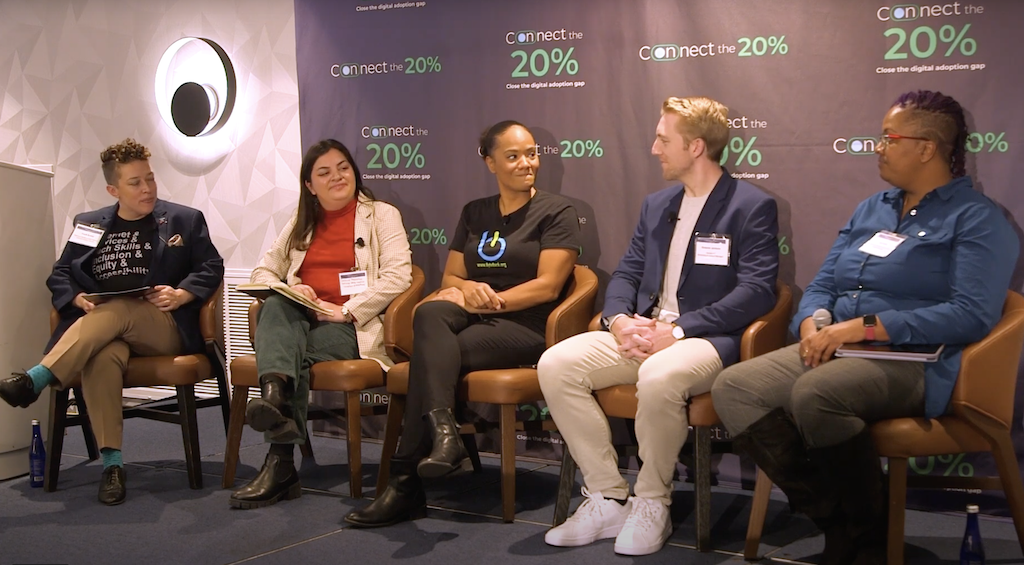Connect20 Summit: The Crucial Role of Digital Skills Training
Digital skills are a necessary foundation for workforce development, said panelists at the Nov. 14 event.

WASHINGTON, November 20, 2023 — A panel discussion at the Connect20 Summit here on Tuesday emphasized the importance of digital skills in enhancing connectivity and ensuring equitable access to technology.
Caroline Treschitta, a policy analyst at the National Skills Coalition, underscored the necessity of foundational digital skills for workforce development. She highlighted the Coalition’s focus on lifelong upskilling and reskilling, particularly in response to labor market shifts like the pandemic. Citing statistics from Indiana, she said one digital skill could result in a 23% wage increase, or the equivalent to an additional $8,000 to $9,000 annually.
She also said that one in three youth also lack foundational digital competency.

Chrissie Powell, chief growth and impact officer at the digital skills training group Byte Back detailed the organization’s efforts at tech inclusion focused on historically marginalized communities.
Byte Back’s approach begins with basic digital literacy, such as teaching how to power on a computer and safely navigate the internet, she said, extending to more advanced skills like Microsoft Office and IT fundamentals. Powell emphasized the significance of building confidence alongside skills to overcome fear, a major barrier in technology adoption.
Graham Jackson, social media and content analyst at Human IT, spoke about the organization’s national digital equity efforts, including providing reliable devices, internet connectivity, and digital skills training. He also mentioned the non-profit’s work in integrating financial literacy into digital skills programs, illustrating the connectedness of multiple technical skills to the domain of digital inclusion.
Representing the Ashbury Senior Computer Community Center, Gina Birch highlighted the organization’s work in digital literacy for seniors. The group has adapted its approach to cater to the varying skill levels of older adults. Burch also discussed the need for ongoing tech support and the evolution of training methods to keep pace with changing demographics and technological advancements.
The panelists called for increased funding and resources and emphasized that digital literacy is the bridge to workforce development as well as an integral part of social determinants of health.
The session was moderated by Yvette Scorse, communications director at the National Digital Inclusion Alliance. NDIA, Network On and Broadband Breakfast organized the Connect20 Summit.
To stay involved with the Digital Navigator movement, sign up at the Connect20 Summit.









Member discussion